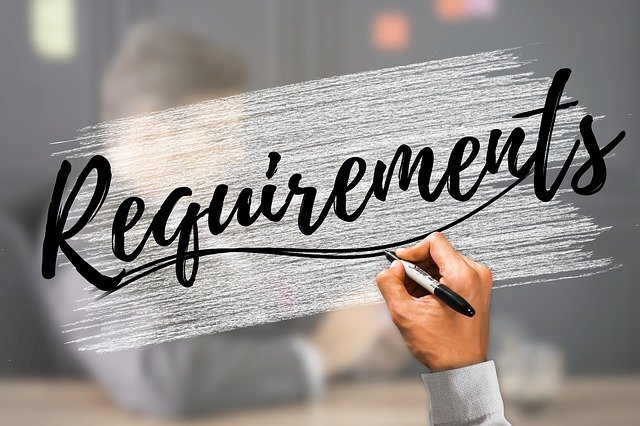How to obtain Permanent Residency in Japan

2023,04,25
Update April 24, 2024
The Japanese version of this blog 永住者になるための要件 2024年
Related blogs How to get PR for Spouses of Japanese Nationals and Permanent Residents
Permanent Residency Application for Highly Skilled Professionals
Permanent Residency and Naturalization in Japan
As of the end of June 2023, the number of foreign residents in Japan holding the status of “Permanent Resident” reached 3,228,858, marking a 4.8% increase compared to the previous year-end, and setting a new record high. With the “Permanent Resident” status, there are no limitations on the duration of stay, freeing individuals from the need to renew their visa and eliminating concerns about potential inability to renew. Moreover, there are no restrictions on activities, allowing individuals to pursue any job just like Japanese citizens.
Given the absence of limitations on activities and duration of stay, the application for permanent residency undergoes a more careful examination compared to the usual change of residency status.
Merits for permanent residency
If you are granted permanent residency in Japan, there are several benefits:
- As there is no limit on the stay duration, you don’t need to renew your visa.
- You don’t need to worry about whether your visa will be renewed or not.
- There are no restrictions on your activities, so you can work in any job just like Japanese citizens.
- You also don’t need to worry about your residency status when changing jobs.
As you can see above, because permanent residents have no restrictions on their activities or stay duration, the screening process for permanent residency is stricter than that for other residency statuses.
Requirements for permanent residency

1.Good conduct
You live a life that is not socially condemned as a member of society, complying with the law in your daily life.
Examples of people who cannot be considered to have good conduct include:
- Those who have been punished with imprisonment, penal servitude, or a fine for violating Japanese laws.
- Those who are under the protection of the Juvenile Law.
- Those who have special circumstances, such as repeatedly engaging in illegal acts or acts that disrupt public morals, and cannot be recognized as having good conduct.
In the screening process for permanent residency, a criminal background check is always conducted, so you cannot hide your past. Also, if you have been punished with more than a fine for a traffic violation, your good conduct may be denied. If you repeatedly commit violations, you may be denied based on your traffic violation history.
2.Having sufficient assets or skills to support themselves
This means that you will not be a burden on public finances in your daily life and that you are expected to have a stable life in the future based on your assets or skills.
“Public burden” means that “it is necessary to be able to recognize that you are currently and will be able to be self-supporting, without receiving public assistance.”
Also, “stable life” is judged not only by your income, but also by the stability of the household as a whole. For example, even if the you have no income, if there is enough income from your spouse or relatives in the same household, the household as a whole will be judged to meet the independent livelihood requirement. Although there is no specific income line, in the case of a single-person household, an annual income of 3 million yen or more is a rough guideline.
3.Being recognized as beneficial to Japan
Residence requirement
The general rule is that you must have been continuously residing in Japan for 10 years or more. However, during this period, you must have been residing in Japan for five years or more with a work permit (excluding the “Technical Intern Training” and “Specified Skilled Worker Type 1″ residence statuses) or a residential status.
Continuously residing for 10 years or more” does not simply mean having an address in Japan for 10 years or more. The number of days of stay in Japan per year is also important. If the stay in Japan is less than 180 days in a year, there is a high possibility that the stay will be considered as interrupted. Also, if the duration of departure per trip exceeds 90 days, there is a high possibility that the stay will be considered as interrupted, and the next year will be counted as the first year.
The phrase “residing continuously for five years or more with a work permit” means that, for example, if you have been a student in Japan for six years and then have had a work permit for four years, totaling 10 years of residency, you would not meet the requirement. You would need an additional year of residency with a work permit to meet the requirement.
Additionally, it’s important to note that periods of working as a “Technical Intern Trainee” or under the “Specified Skilled Worker Type 1” status do not count towards the requirement of “residing continuously for five years or more with a work permit.”
The term “residential status” refers to a type of residency status that involves having a certain status such as “spouse of a Japanese national.”
Good conduct
You must not have received a prison term, a fine, or any other type of punishment for violating any law or regulation in Japan. You must also fulfill all public obligations such as paying taxes, public pension premiums, and public medical insurance premiums, as well as obligations of notification, etc. under the Immigration Control and Refugee Recognition Act.
Tax and pension compliance
Documents related to taxes and pensions are also required. It is necessary to ensure that taxes such as income tax and resident tax, and pensions such as employee pension and national pension are being properly paid. In addition, compliance with payment deadlines may also be questioned. We often hear of cases where applications for permits have been denied because individuals have not paid their taxes or pensions or have not paid them by the payment deadline.
Length of stay
You must be currently residing in Japan with a valid visa or residency status. It is required to have been granted a period of stay of three years or more.
No health concerns
You must not pose a threat to public health.
Note: If you have been recognized as a refugee, the “having sufficient assets or skills to support themselves” requirement does not apply
Relaxation of the General Requirement of 10 Years of Residence
In some cases, the general requirement of having a period of stay of 10 years can be relaxed. The following are the conditions for this relaxation:
- Spouse of a Japanese national, permanent resident or special permanent resident → marriage/cohabitation period of 3 years or more, with a stay in Japan for at least 1 year
- Child of the above-mentioned person → stay in Japan while living with them for at least 1 year
- Holder of a “long-term resident” residency status → stay in Japan for 5 years or more
- Holder of a “highly skilled professional” residency status → stay in Japan for at least 1 year with a score of 80 or more in the “Highly Skilled Foreign Professional” system, or at least 3 years with a score of 70 or more
- Holder of a “special highly skilled professional” residency status → stay in Japan for at least 1 year (J-Skip visa)
- Persons recognized for their contributions to Japan in the fields of diplomacy, society, economics, culture, etc. → stay in Japan for 5 years or more
- Persons who have been recognized as refugees → continue to stay in Japan for 5 years or more after recognition
Note: If a family member who is expected to be granted permanent residency applies for a visa at the same time, they can also be subject to the special conditions for cases 1 and 2.
Summary
To enjoy the benefits of being a permanent resident, you must meet various conditions and submit required documents to obtain permission for permanent residency. With the revision of the guidelines regarding permission for permanent residency in May 2019, the criteria for permission have become stricter. Currently, the review period for applications takes an average of six months to ten months.
If you’re looking for help with your PR application, we’re excited to assist you with our extensive experience in successfully helping clients. Please contact us.
Profile
Ami Ito Immigration lawyer in Tokyo, Japan
– Spent high school years in the U.K. and graduated from a local school.
– Studied mainly intercultural communication at Sophia University’s Faculty of Foreign Languages, English Department.
– Worked in the overseas department of SEIKO for 11 years after graduation.
– Over 10 years of experience teaching English to high school students, with a TOEIC score of 970 and a Class A level in the United Nations Associations Test of English.
– Serves as a board member in charge of international affairs at the Chiba Administrative Scrivener Association.
– Officially registered on the Financial Services Agency’s “List of Professionals (Administrative Scriveners) in Chiba Prefecture capable of providing services in foreign languages.”
News and Blog








